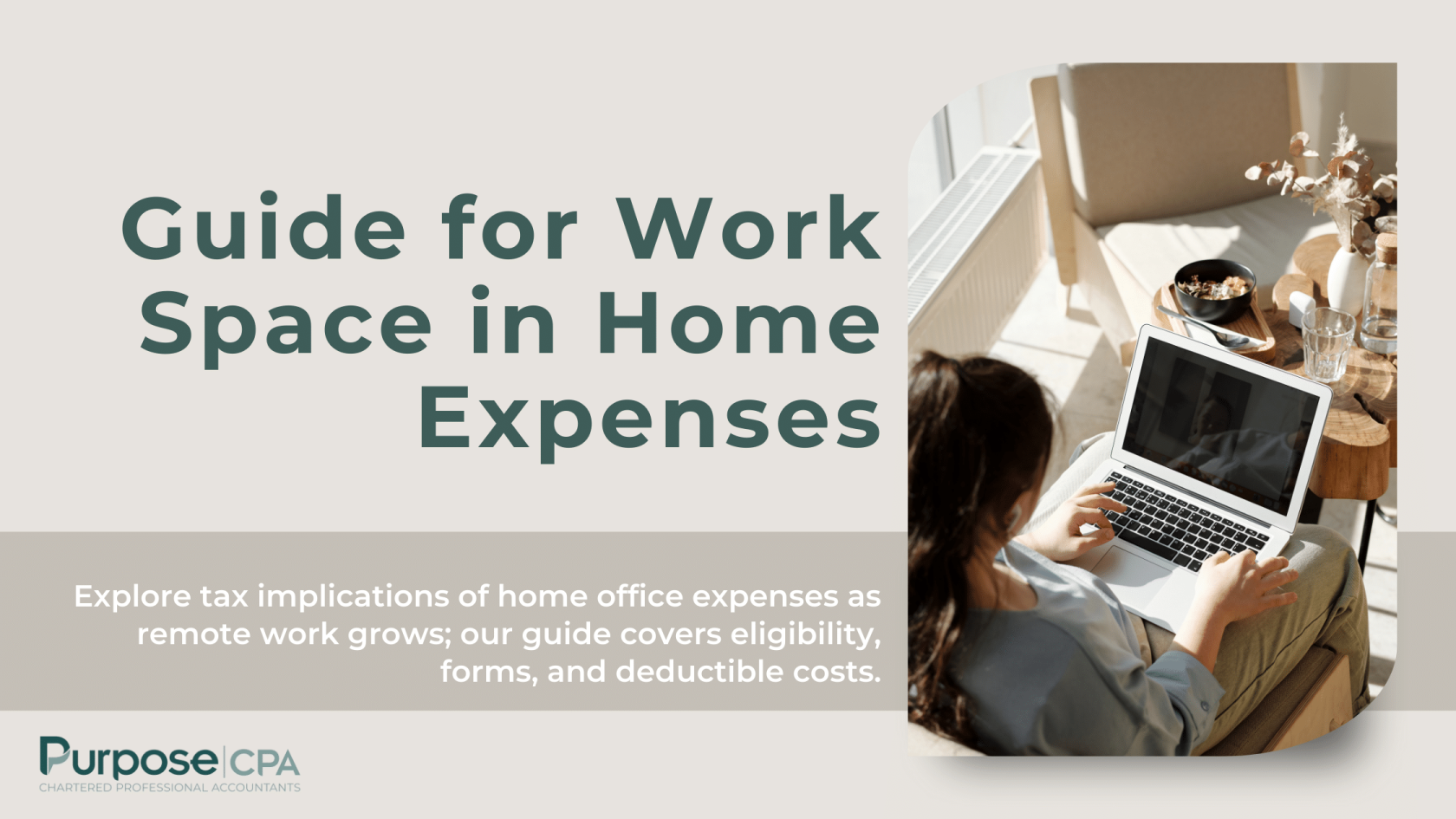As remote work becomes increasingly common, grasping the tax implications of your home office expenses is vital. Whether it’s due to COVID-19 or personal choice, understanding your deductible claims can greatly affect your finances. This cheat sheet covers the basics of home office expenses, eligibility, necessary forms, deductible costs, and tips for accurate record-keeping.
Who’s it for?
- Sole proprietorship
- Incorporated person
- Employees working remotely
- Self-employed individuals
Keep reading if you are…
- Interested in learning more about taxes
- Seeking clarity on tax deductions
- Wanting to optimize your work-from-home expenses
- Eager to maximize your tax savings
Why does this matter to me? Understanding your home office deductions can lead to substantial tax savings. By optimizing your work-from-home expenses, you can minimize your tax burden effectively. Keep reading to learn how you can maximize your tax savings and ensure you’re taking full advantage of available deductions.
TLDR:
If you’ve been working from home because of COVID-19, you might be able to claim home office expenses on your taxes. This includes things like electricity, heating, internet, and even part of your rent or mortgage interest.
Guide for Work Space in Home Expenses
Who is eligible?
If you worked from home due to COVID-19 in 2020, 2021, or 2022, whether by choice or mandate from your employer, you may be eligible to claim home office expenses. The eligibility extends to both employees and self-employed individuals. If you operate as a sole proprietorship or are an incorporated individual, you can claim home office expenses as well, provided that you conduct meetings at home and use it as a place to earn income. However, regular employees with T4 forms who worked from home are ineligible. Additionally, to qualify for such home office expenses, employers must provide a signed T2200 form.
Required form:
To claim home office expenses, you’ll need to complete either Form T777S, “Statement of Employment Expenses for Working at Home Due to COVID-19,” or Form T777, “Statement of Employment Expenses,” depending on your eligibility and specific circumstances.
Expenses you may be able to claim:
| Expenses | Type of Expense |
|---|---|
| Electricity | Variable |
| Heating | Variable |
| Water | Variable |
| Utility Taxes | Variable |
| Home Internet Access | Variable |
| Maintainance and Minor Repairs | Variable |
| Rent | Fixed |
| Mortgage Interest (Employees earning commission only) | Fixed |
| Home Insurance | Fixed |
| Property Taxes | Fixed |
| Capital Cost Allowance (For Homeowners) | Fixed |
For a detailed breakdown of work-from-home expenses you can claim:
1. Variable Expenses:
- Electricity: Deduct the portion of your electricity bill attributable to your workspace by calculating the percentage of your home’s total square footage used for work.
- Heating: Similarly, claim the portion of your heating bill related to your workspace using the percentage of your home’s total square footage designated for work.
- Water: Claim a portion of your water bill if used for work-related tasks like filling a humidifier or cleaning your workspace.
- Utility Taxes: Any taxes related to utilities used for your workspace are deductible.
- Home Internet Access: Claim a percentage of your internet expenses for work purposes based on the time spent on work-related tasks versus personal use.
- Maintenance and Minor Repairs: Deduct costs for maintaining your workspace, including painting or repairing minor damages.
2. Fixed Expenses:
- Rent: Renters can claim a portion of their rent related to their workspace.
- Mortgage Interest: Homeowners may deduct a portion of their mortgage interest if using part of their home for work.
- Home Insurance: Claim a portion of your home insurance premiums if utilizing part of your home for work.
- Property Taxes: Homeowners can deduct property taxes corresponding to the square footage of their workspace.
3. Capital Cost Allowance (for Homeowners):
- CCA: Homeowners using part of their home for work may be eligible to claim CCA, allowing the deduction of costs for depreciable property like furniture or equipment used for work purposes.
Being aware of what you can claim for your home office expenses can lead to significant tax savings. Remember to keep detailed records and receipts to support your claims accurately. You can always the CRA’s Home Office Deduction Calculator to self-estimate your home-office deduction. Also, feel free to reach out to us for personalized advice based on your specific situation. Don’t miss out on the deductions you’re entitled to; take advantage of this cheat sheet to optimize your work space in home expenses and save on your taxes!




